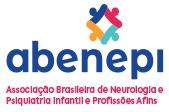JONNA KUNTSI

Social, Genetic and Developmental Psychiatry Centre
Institute of Psychiatry, Psychology & Neuroscience
King‘s College London
Jonna Kuntsi is Professor of Developmental Disorders and Neuropsychiatry at the Social, Genetic and Developmental Psychiatry (SGDP) Centre, Institute of Psychiatry, Psychology and Neuroscience, King’s College London. She first joined the Centre as a Lecturer, following training (BSc, MSc, PhD) and positions at University College London and the Great Ormond Street Hospital for Children. Her research focuses on attention deficit hyperactivity disorder (ADHD) and other conditions and traits that often co-occur with ADHD, which range from other neurodevelopmental and psychiatric conditions, such as autism and depression, to physical conditions. She takes a developmental approach, studying the conditions and traits from childhood to adulthood. A major focus currently is the ADHD Remote Technology (ART) research programme, which she leads with Professor Richard Dobson (www.kcl.ac.uk/research/adhd-remote-technology-art). Following initial development and a pilot study, the ART system is now being used in large-scale studies funded by the UK Medical Research Council and the European Commission. She is Co-Chair of the European ADHD network EUNETHYDIS (from January 2024) and is on the steering committee/Principal Investigator in several other international research networks, including the International Multi-centre Persistent ADHD Collaboration ‘IMpACT’, the ECNP ADHD across the Lifespan Network and the ECNP Digital Health Applied to the Clinical Research of Brain Disorders Network. She actively collaborates with patient advocacy organisations, including ADHD Europe and the UK ADHD Information and Support Service (ADDISS), and with SMEs, such as Empatica and The Hyve.
Institute of Psychiatry, Psychology & Neuroscience
King‘s College London
Jonna Kuntsi is Professor of Developmental Disorders and Neuropsychiatry at the Social, Genetic and Developmental Psychiatry (SGDP) Centre, Institute of Psychiatry, Psychology and Neuroscience, King’s College London. She first joined the Centre as a Lecturer, following training (BSc, MSc, PhD) and positions at University College London and the Great Ormond Street Hospital for Children. Her research focuses on attention deficit hyperactivity disorder (ADHD) and other conditions and traits that often co-occur with ADHD, which range from other neurodevelopmental and psychiatric conditions, such as autism and depression, to physical conditions. She takes a developmental approach, studying the conditions and traits from childhood to adulthood. A major focus currently is the ADHD Remote Technology (ART) research programme, which she leads with Professor Richard Dobson (www.kcl.ac.uk/research/adhd-remote-technology-art). Following initial development and a pilot study, the ART system is now being used in large-scale studies funded by the UK Medical Research Council and the European Commission. She is Co-Chair of the European ADHD network EUNETHYDIS (from January 2024) and is on the steering committee/Principal Investigator in several other international research networks, including the International Multi-centre Persistent ADHD Collaboration ‘IMpACT’, the ECNP ADHD across the Lifespan Network and the ECNP Digital Health Applied to the Clinical Research of Brain Disorders Network. She actively collaborates with patient advocacy organisations, including ADHD Europe and the UK ADHD Information and Support Service (ADDISS), and with SMEs, such as Empatica and The Hyve.
Check the activity agenda
Friday, May 24, 2024
• | Room 01 |
10:30-12:00
PLENARY SESSION: FUTURE TOOLS FOR CLINICAL PRACTICE
Genetics
Developing evidence-based digital technologies: the example of ADHD transitio
Mother-child interaction
Discussion
Coordinator: Carmen M Schroder (France)
Genetics
Speaker: Barbara Franke (Netherlands)
Developing evidence-based digital technologies: the example of ADHD transitio
Speaker: Jonna Kuntsi (Outro País)
Mother-child interaction
Speaker: Victoria Leong (Singapore)
Discussion












